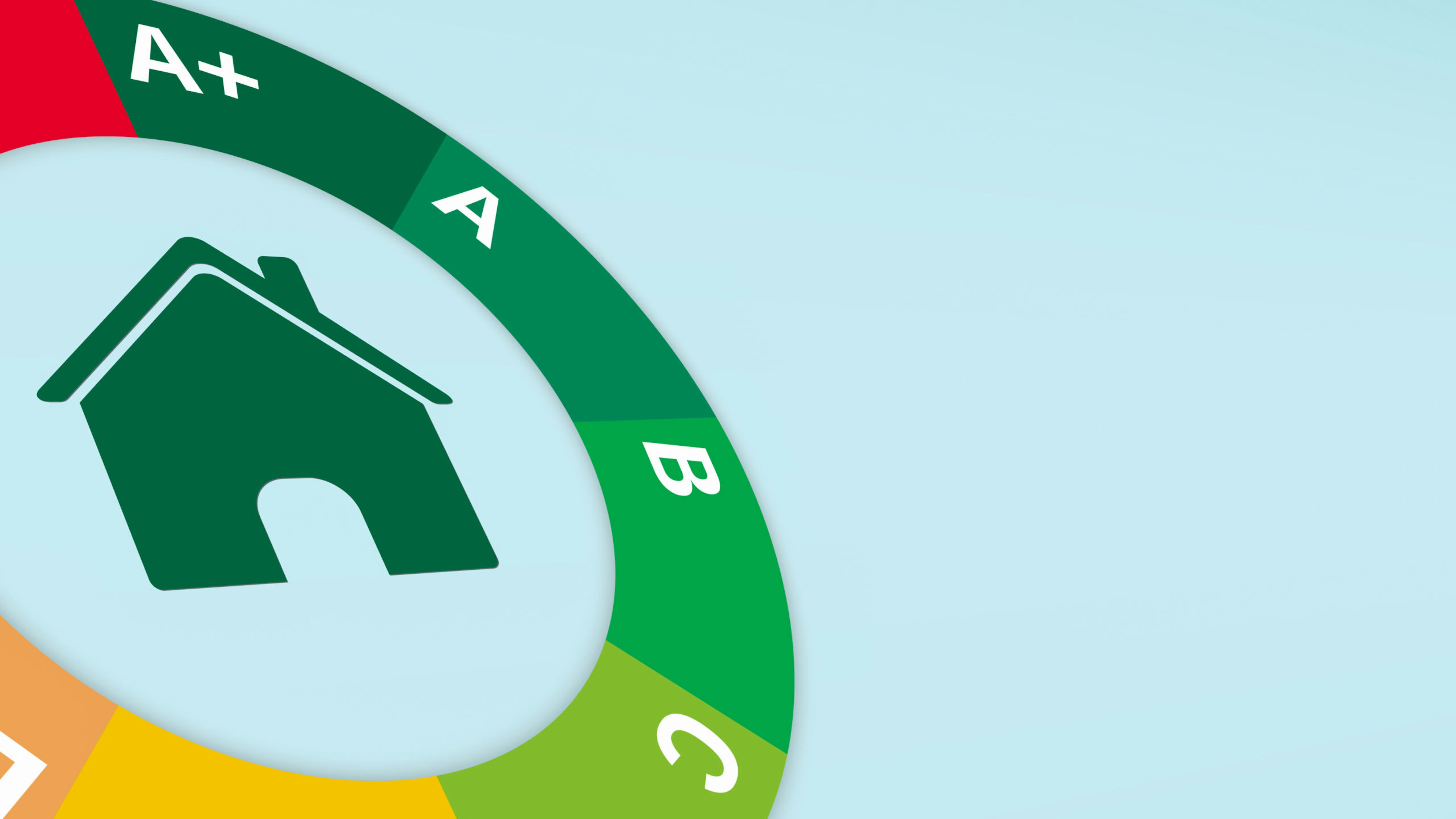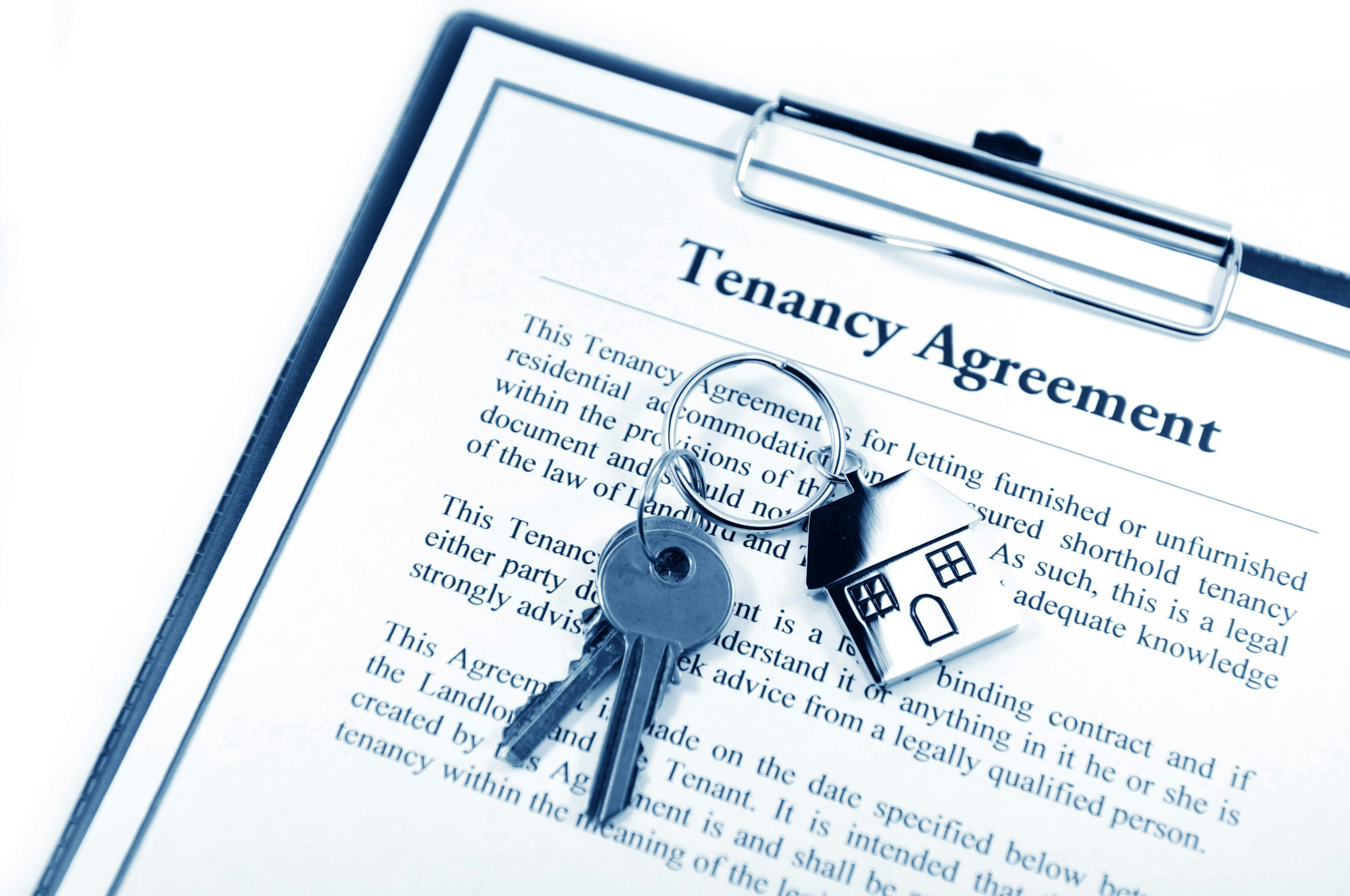Landlord's guide to improving EPC ratings
The government’s drive to improve the energy efficiency of homes in the private rental sector is about to make life tougher for landlords.
By Alan Boswell Group

- What is the minimum EPC rating for rental properties?
- Are there any proposed changes to EPC regulations?
- How many rental properties would've been affected by the new EPC rating changes?
- EPC ratings explained
- Are there exemptions on EPC ratings?
- Top tips to making a rental home more energy efficient
- Benefits of improving your EPC
- FAQs
In this article
- What is the minimum EPC rating for rental properties?
- Are there any proposed changes to EPC regulations?
- How many rental properties would've been affected by the new EPC rating changes?
- EPC ratings explained
- Are there exemptions on EPC ratings?
- Top tips to making a rental home more energy efficient
- Benefits of improving your EPC
- FAQs
Buy to let owners already have lots of landlord certificates to get right and this is no different. Failure to meet existing standards can already see landlords fined up to £5,000.The proposed changes form part of the government’s ‘powering our net zero future’ strategy, which builds on the Minimum Energy Efficiency Standards (MEES) that took full effect from 1st April 2020.In this guide, we’ll set out the proposed changes, the impact on landlords, and how to improve your EPC rating to meet the future challenges.
What is the minimum EPC rating for rental properties?
All properties in the private rental sector must have a minimum EPC rating of E or better under the MEES legislation. Since 1st April 2020 this has applied to both new and existing tenancies, no matter when the tenancy started. It is now unlawful to rent out a private dwelling with an F or G EPC rating, with landlords facing fines of up to £5,000 for non-compliance.
Are there any proposed changes to EPC regulations?
The Government was proposing that all newly rented private properties will be required to have a minimum EPC rating of C or above by 2025, with existing tenancies compliant by 2028. However, in a speech by Prime Minister Rishi Sunak on the 20th September 2023, these plans will no longer be going ahead. Had they gone ahead, these changes would've posed a real challenge for landlords, especially those with older properties in their portfolio, which would've needed significant investment to bring up to standard.
How many rental properties would've been affected by the new EPC rating changes?
The initial changes that came into force in 2020 led to an estimated 290,000 rental properties needing improvement work to bring them up to an EPC rating of E, at an average cost of £1,200 per property. Given that 36% of the UK’s 4.4million private rented properties were built before 1940 and, according to Shawbrook, 23% of landlords admitted their properties were rated D or below. A further 27% of landlords don’t know the rating of their property, or what work would be required to bring it up to an EPC C rating. Failure to upgrade the properties could've cost landlords an average of £9,500 per year in lost rent, while the cost of upgrades was estimated at £5,900 per property.
EPC ratings explained

EPC ratings range from A (most efficient) to G (least efficient), with the rating determined by:
the amount of energy used per m2;
the level of carbon dioxide emissions in tonnes per year.
Qualified assessors rate a property’s energy efficiency based on a number of factors, including the potential for heat loss, the level of insulation, the presence of double glazing, and the type of boiler. Each area inspected is given a Standard Assessment Procedure (SAP) score, with the total score converted into a rating of A to G, with another column showing what the property could achieve with remedial action, which are also detailed on the certificate along with an environmental impact rating. The average rating of all properties in the UK is D, which shows how much progress is required in general for many landlords to achieve a C rating, an above average score in the current market. The EPC bands are scored as follows:
EPC rating A = 92-100 SAP points
EPC rating B = 81-91 SAP points
EPC rating C = 69-80 SAP points
EPC rating D = 55-68 SAP points
EPC rating E = 39-54 SAP points
EPC rating F = 21-38 SAP points
EPC rating G = 1-20 SAP points.
Read more about Energy Performance Certificates.
Are there exemptions on EPC ratings?
There are a few exemptions available to landlords that allow you to continue to rent a property with a rating of F or G, all of which must be specifically applied for.
All relevant improvements made: a five-year exemption if the property remains below EPC E after improvements have been made up to the cost cap (£3,500 including VAT), or there are none that can be made.
High cost: a five-year exemption if no improvement can be made because the cost of installing even the cheapest recommended measure would exceed £3,500.
Wall insulation: a five-year exemption if wall insulation is the only improvement that can be made, and it would negatively impact the fabric or structure of the property.
Third party consent: where a landlord cannot obtain the required consent from a third party, such as a tenant, superior landlord, or lender, to carry out work. If you cannot gain consent from your tenant, then you must keep evidence of communication.
Property devaluation: a five-year exemption where a landlord can prove that the installation of energy efficiency measures would reduce the market value of the property by more than 5%.
New landlords: a six-month exemption where a person becomes a landlord suddenly or in certain circumstances.
Top tips to making a rental home more energy efficient
If your rental property is not yet at an EPC rating of E or better, you need to act fast to avoid possible fines. Even if your property is already E rated, you need to turn your attention to potential future changes to regulations that are likely to require further improvements. It may be more cost effective to make a number of changes at the same time, rather than carrying out improvements in isolation.
How to improve your EPC rating
We’ve put together a list of upgrades you can make that will improve your property’s EPC, covering many of the major areas assessors look at when providing your score.
Upgrade your lighting to LED light bulbs
If your EPC rating is on the margin, simply changing your lighting from incandescent or Halogen to LED bulbs is a cheap and easy fix which could improve your EPC band. A typical 60 watt incandescent bulb gives you about 1,200 hours before it needs to be replaced, while a 6 watt LED bulb will last up to 60,000 hours. They may cost more up front, but they’ll save you money in the long run and could boost your EPC score.
Insulate the walls and roof

Insulating your walls and roof space can be a very efficient way of improving your EPC score, especially if there was either no or insufficient insulation installed before. Insulation is one of the government’s major drivers of improving home energy efficiency, with uninsulated properties losing about a third of its heat through the roof. Fitting roof insulation to at least 270mm can have a dramatic effect on heat loss, while wall insulation can also lead to big savings on heating bills. Costs of wall insulation vary depending on whether you need cavity wall insulation (where there is a gap between two layers of brick) or solid wall insulation (where there is no gap, typically found on properties built before 1920).According to Checkatrade the average cost of cavity wall insulation for a semi-detached property is £475 - a relatively cheap way to improve your EPC rating. Solid wall insulation is more expensive, potentially costing up to £10,000 for the same semi-detached house, an investment that would only pay off over a much longer period.
Invest in double or triple glazed windows
Double glazing is nothing new, having been a staple of home improvements since the 1980s, helping to reduce up to 40% of heat loss through the windows. Most homes these days have double glazed windows, but some older properties that don’t have them fitted can see a boost to their EPC score by having them installed. The cost of uPVC double glazing is likely to be in the region of £4,000-£5,000 for a typical terraced house. Triple glazing is less well known but becoming more popular and is often the only option available if you have a Grade listed property. However, while there will be marginal gains over double glazing, it will not make a huge impact on your EPC score, and there are likely to be more cost-effective measures you can take to add points to your tally.
Floor insulation
Insulating the ground floor of your property can save money on heating bills and improve your EPC score, according to the Energy Saving Trust. Between 10 and 20% of heat is lost through a building’s floor if they are not insulated to a reasonable standard, with annual savings of £180 on heating for a detached house. Insulation for a suspended floor (with a gap underneath) should cost between £1,600 and £2,900, but costs rise for solid floors.
Install a more efficient boiler

It goes without saying that if you have an old boiler with a poor appliance rating, your overall EPC score will be lower. Switching to a newer, more efficient condensing boiler can significantly improve your rating, sometimes by as much as 40 points - moving you up two or three bands. While an A-rated new boiler is likely to set you back up to £3,000, it can make your property much more energy efficient, and therefore more attractive to new tenants. It should be paired with TRVs on radiators, and a smart thermostat, to give maximum benefit.
Install a smart meter

Smart meters won’t improve your EPC rating, but they will provide real-time information to your tenants about how much energy they are using and encourage them to make savings.
Insulate your hot water tank
If your hot water is stored in a tank, adequately lagging it can add a few points to your EPC score and save you around £35 per year. A hot water tank jacket can be purchased for about £25.
Install solar photovoltaic panels
If your budget can stretch to it, and you really want to reduce your carbon emissions, you could consider installing solar panels - the most common domestic renewable energy source in the UK.A 6kw system will cost in the region of £10,000 and save up to £430 a year on electricity bills, reducing your emissions by 680kg of carbon dioxide a year. Solar panels can also boost your EPC rating, but a property must have a minimum rating of D to start with.
Benefits of improving your EPC
As well as complying with the law, and preparing for future legislative changes, there are other reasons for improving the EPC rating of your rental property.
Lower energy bills: now, more than ever, it’s important to lower your energy consumption and reduce your energy bills by as much as possible, especially if you rent out a property with ‘bills included’. If the tenants pay the bills, your property may be more attractive to rent than other properties with a worse EPC score.
Improve your property value: properties with better EPC ratings are more likely to sell, for a higher price, than those with a poor rating.
Lower your carbon footprint: be part of the drive towards net zero by reducing your carbon emissions.
Reduced maintenance: by improving your property’s energy efficiency, you are less likely to have to deal with maintenance issues like mould, damp, condensation, and frozen pipes.
FAQs
How do I improve my EPC?
Fit energy efficient light bulbs
Upgrade your wall and loft insulation
Fit double glazing
Install a more efficient boiler
Insulate your hot water tank
What is a good EPC score?
To rent out a private property, you must have an EPC rating of E or better. However, a rating of E wouldn’t be considered ‘good’, and the government could toughen regulations to require a C rating by the end of the decade.
What is a bad EPC rating?
A rating of F or G is considered too energy inefficient to be suitable for the private rental market in 2022. Renting a property with such a poor rating can carry a fine of up to £5,000.
Are there any domestic properties that do not require an EPC?
Listed buildings and buildings within conservation areas are exempt from EPC certificates, with certain conditions. Where a listed building had an EPC before 2013, when the exemption came into force, it must still meet the E rating before it is rented. If the listed building has never had an EPC, it can be rented out without one only if energy efficiency improvements would harm the character of the building. This also applies to properties within conservation areas.
What documents do I need as a landlord?
You will need to provide an up-to-date EPC, along with a range of other documentation.
What are my landlord responsibilities?
Our guide to the legal obligations and responsibilities of a private landlord provides everything you need to know, while you can read more advice and guidance about the law and regulations here, as well as further information on the responsibilities of a commercial landlord. It’s worth bearing in mind that failure to comply with your legal obligations towards your tenants will invalidate your landlord insurance. Landlords should also keep evidence and receipts of work they have had done to the property. Legislation and guidance included in this article is correct as of October 2022. Please note that legislation does change, it is always best to check the most up to date guidance on gov.uk. Many landlord insurance policies arranged by Alan Boswell Group also have access to a legal advice helpline where policyholders can seek further advice.
Need help with your insurance?
Whether you need a quote, have a general enquiry, or want to talk it through over the phone, we're here to help.
Send an enquiry
Related guides and insights

What is an EPC? Regulations Explained
Properties built, sold or leased since 2008 require an Energy Performance Certificate (EPC) and will be affected by Minimum Energy Efficiency Standard (MEES). Do you know how to stay compliant?

Does my holiday home need an Energy Performance Certificate (EPC)?
If you need an EPC for your holiday let but don’t have one, you could be fined. Here’s what your obligations are when it comes to arranging an Energy Performance Certificate.

Guide to commercial landlord laws and regulations
A guide to all the law and regulations that commercial landlords need to know about.

Guide to landlord responsibilities
What are the legal responsibilities and obligations of a private landlord? Read our complete guide.
